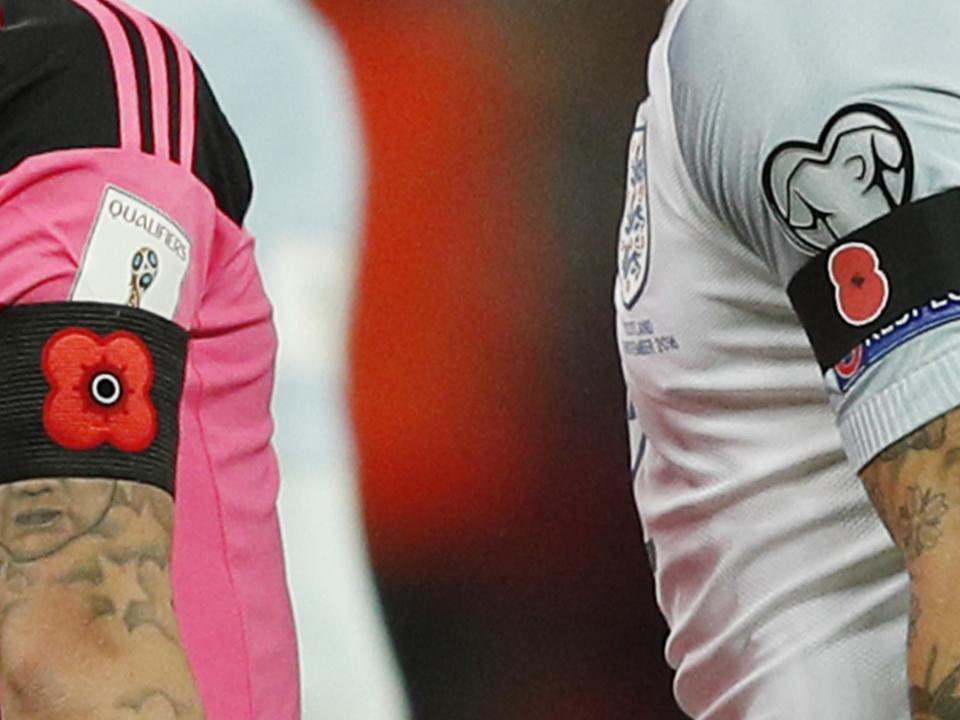Fifa praised for ‘applying common sense’ over poppy ban U-turn by sports minister Tracey Crouch

Sports minister Tracey Crouch says she is pleased Fifa “is finally going to apply common sense” by allowing football players from the home nations to wear commemorative poppies on international match day shirts.
England, Northern Ireland, Scotland and Wales were all fined by Fifa for ignoring warnings not to honour Armistice Day during their World Cup qualifiers last November.
Fifa's stance - based on a strict interpretation of its laws against the use of personal, political or religious slogans or symbols - sparked widespread condemnation in Britain, with Prime Minister Theresa May calling it "utterly outrageous" in Parliament.
But now, 10 months after a Fifa disciplinary panel dished out those fines, football's world governing body has sent its member associations new guidance on law four, the section of the game's rule book on what players can wear.
“I am pleased that it appears that Fifa is finally going to apply common sense and change its position on poppies,” Crouch said in a statement on Monday.
“It is completely right that footballers and fans alike should be able to wear poppies with pride, as a tribute to the bravery and sacrifice of our serviceman and women.”
In its new guidance, Fifa says certain "initiatives" may appear on players' kits, along with the usual name, number, team crest and so on.
The document does not provide much clarity on what these "initiatives" might be but says they cannot breach law 12, which refers to foul play and abusive language, and restates law four's existing criteria which rule out wearing "personal" or "religious... slogans, statements or images".
This leaves "political", which Fifa admits "is less clear", although it obviously rules out slogans and symbols related to political parties and governments.
It adds: "When commemorating a significant national or international event, the sensibilities of the opposing team (including its supporters) and the general public should be carefully considered."
What this means in practice, is that England, or any other team that wants to wear poppies on their shirts to mark Armistice Day, can do so, providing they get their opponents' permission and inform the organisers of the match.
If England seal qualification for next summer's World Cup in their next two games in early October, they are set to play Germany in a friendly at Wembley in November and it is understood they have already been given permission by the German FA to wear poppies.

 Yahoo Sports
Yahoo Sports 